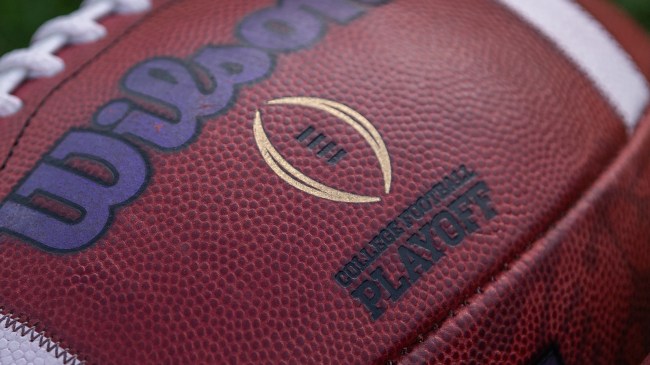
Getty Image
On Sunday, we learned Michigan, Washington, Texas, and Alabama will be competing in this year’s College Football Playoff—a list of schools that controversially does not include Florida State. Now, we may have some insight into that borderline criminal snub courtesy of a committee member involved with the decision.
The Florida State Seminoles improved to 13-0 on the season with a victory over Louisville in the ACC Championship Game on Saturday. They managed to do so while starting freshman QB Brock Glenn, who stepped up to fill the void that formed in the absence of Jordan Travis and his backup Tate Rodemaker.
While it seemed like FSU was going to be a shoo-in for the College Football Playoff with Travis at the helm, those hopes were cast into doubt after he suffered a season-ending injury during the team’s showdown with North Alabama, which led to some people speculating the CFP committee could penalize them for being without the services of their star player.
Of course, Florida State was still undefeated in a Power 5 conference, and there was precedent for allowing a team in a similar situation to punch their ticket to the CFP thanks to what transpired when Cardale Jones led Ohio State to a national championship to cap off the 2014 campaign.
However, those factors apparently weren’t enough to get the invite.
That development understandably sparked a massive outcry from not only FSU supporters who felt they were robbed but plenty of college football fans who were convinced the fix was in and floated conspiracy theories about ESPN colluding with the SEC to ensure the conference would be represented after Alabama defeated Georgia in their championship showdown.
Now, that very outlet has shed some light on what transpired in the meeting that determined which quartet would compete in the CFP, and one anonymous committee member seemed to all but admit Travis’ injury was the primary reason FSU was excluded, saying:
“All of us had the emotional tie, like, ‘Holy s—, this is really going to suck to do this.
We talked about that over and over, and we just kept coming back [to] are they good enough with what they have to win a national championship, and it just kept coming back [to] we didn’t think they could.”
That obviously won’t sit well with members of the FSU faithful and plenty of other people who think the team at least earned the right to compete for a title, but at least we have some insight into the thought process even if it leaves a bit (or a lot) to be desired.